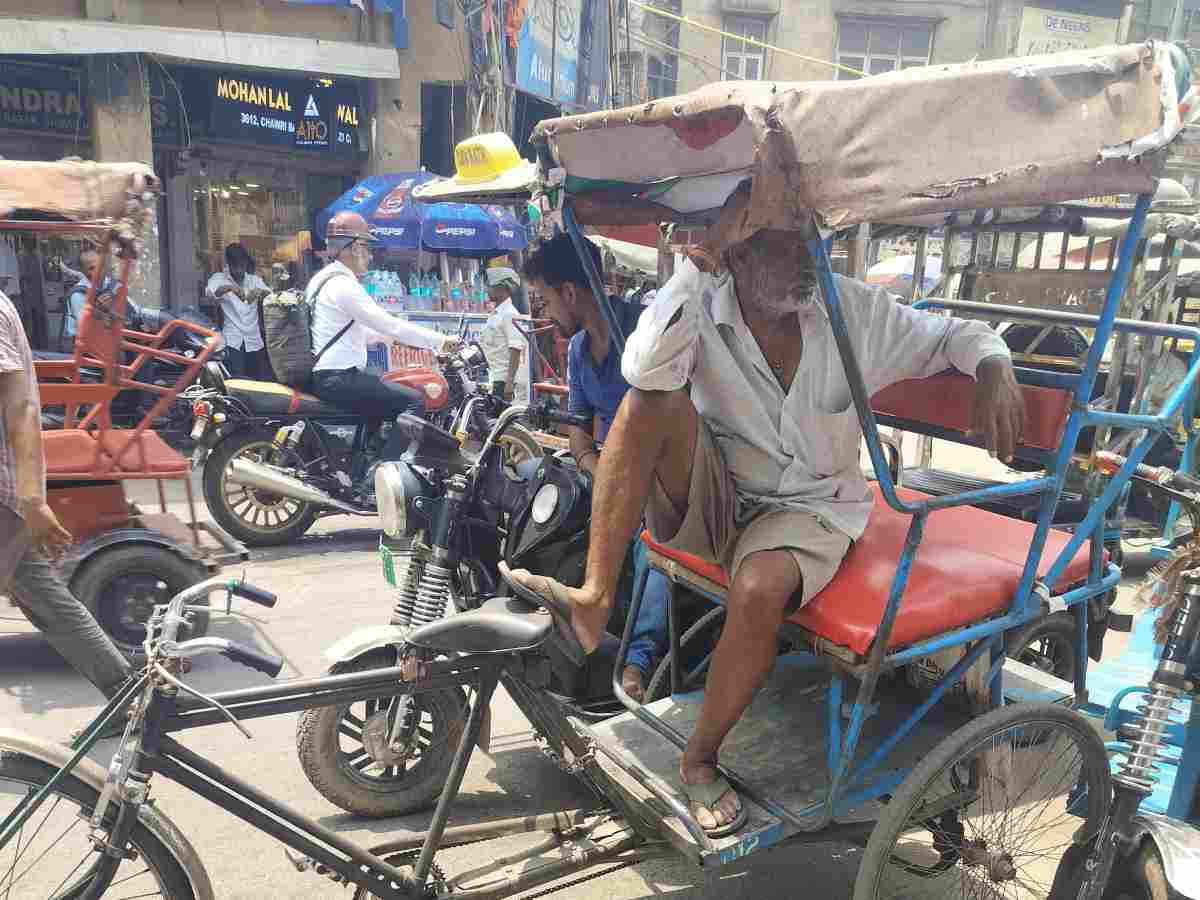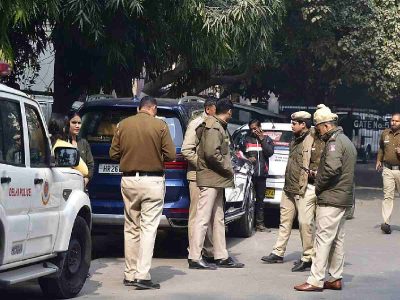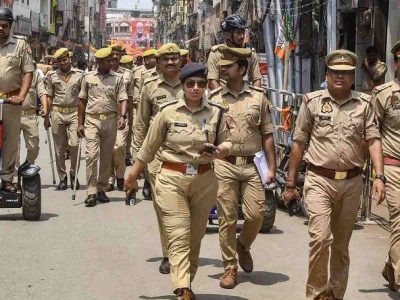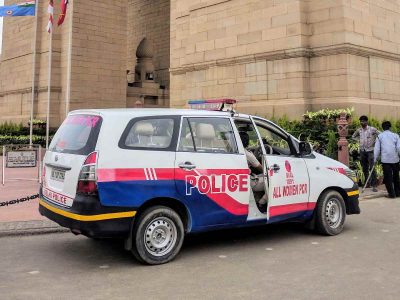Delhi recorded its hottest day in history on May 29, with temperatures crossing the 50-degree Celsius mark. Prabhu Kumar, a manual rickshaw puller, has been navigating the bustling streets of old Delhi for over two decades. His health is failing, and his feet, worn by age, struggle to pedal the wheels. He has no choice but to accept his fate as he faces increasing difficulty in making ends meet.
“I come from Bihar, and my family lives in the village. I have three sons, but none of them support me and my wife. They have abandoned us. I have no option but to struggle each day to earn a living,” he shares, his voice tinged with resignation and determination.
For Prabhu and many like him, every ride is a lifeline. However, their earnings are meagre, barely enough to cover daily expenses. The advent of battery-operated rickshaws, with their faster speeds and greater comfort, has sharply cut into their already slim earnings.
Also Read: Delhi almost touches 50 degree C as heatwave intensifies
Passengers increasingly opt for these modern alternatives, leaving manual rickshaw pullers struggling.
He says, “The humble manual rickshaw, once a ubiquitous sight, is gradually being overshadowed by the sleek, efficient battery-operated rickshaw.”
While this shift signifies progress and sustainability, it also highlights the poignant struggles of manual rickshaw pullers, whose livelihoods are affected.
Noor Aalam, 30, just finished dropping off a passenger from Lajpat Nagar Central Market to Amar Colony. Wiping the sweat from his brow with a cloth hanging around his neck, he sighs, “It’s so hot, but what can you do? I have to work to feed my children. I get tired quickly, especially with the kind of summers we’re having in Delhi. I don’t know how I’ll survive in the coming days. The only times I work are in the mornings and evenings when office workers are going to and coming back from work.”
All through the day, he sits in his rickshaw, using it as his bed to take short naps.
“The heatwave is so strong that it drains my energy. The other day, I had to take a passenger to the metro station from the central market, which is a short distance, but I couldn’t pedal. I felt exhausted. Luckily, the passenger was understanding, and I managed to earn some money.”
Economic hardships and daily struggles
The financial hardships faced by manual rickshaw pullers are multifaceted. Most of them come from impoverished backgrounds, with limited access to education and healthcare. Their work is physically demanding, often taking a toll on their health. The income they generate, typically between Rs 200 to Rs 300 a day, is little, and varies with the weather, competition, and personal health.
Also Read: Delhi’s heatwave crisis: Surge in hospital visits as temperatures soar
“The introduction of battery-operated rickshaws has exacerbated our challenges. Battery rickshaws are faster and can cover more ground, making them more appealing to passengers in a hurry. Additionally, they require less physical effort, attracting new entrants who might have otherwise become manual rickshaw pullers,” tells Om Prakash, 42, a manual rikshaw puller.
This increased competition leaves manual rickshaw pullers like Prakash with fewer passengers and dwindling earnings.
In 2006, Institute for Transportation and Development Policy (ITDP) observed that manual rickshaws offer a legitimate livelihood to three percent of India’s population without requiring any financial investment or support from the government.
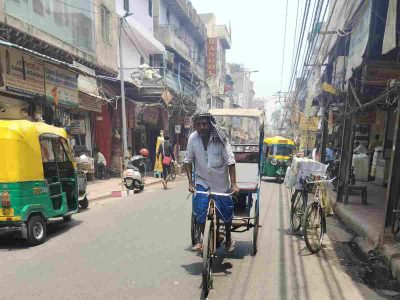
Kishore Singh, 34, who migrated to Delhi from Bilari, Uttar Pradesh at the age of 20, reflects on the challenges he faces: “I have been waiting for a passenger since morning. It’s office time, and everyone is in a hurry. Despite my best efforts to persuade them, they choose battery-operated rickshaws. I barely get 8-9 passengers a day, and with the scorching heat, people are reluctant to sit in a manual rickshaw because it takes longer.”
Those who do opt for manual rickshaws often haggle extensively.
“People are ready to pay 30 rupees for the shortest distance in a battery-operated rickshaw, but when we ask for the same amount, they start bargaining,” Kishore laments.
It’s a migrant workers occupation
In Delhi, the majority of rickshaw pullers are migrants from rural areas, typically from agricultural or artisanal backgrounds. As traditional occupations like weaving and craftsmanship decline, many have turned to pulling rickshaws due to its low skill requirement, minimal capital investment, and immediate income potential. Rickshaw pullers cater to demand in a natural market environment.
In Delhi, rickshaw pullers can hire rickshaws from contractors for a daily fee of up to Rs 25. New rickshaws cost between Rs 6,500 and Rs. 9,000, while second-hand ones range from Rs 2,000 to Rs 4,000.
Renting a rickshaw costs pullers Rs 1,000 to Rs 1,500 per month, significantly more than buying one outright. High rental rates are due to strict corporation laws, with penalties ranging from temporary confiscation to impoundment for violations, leading to heavy losses for contractors.
Also Read: Delhi burns in heatwave as temperatures skyrocket
Kishan Dev, a manual rickshaw puller in Lajpat Nagar, says, “I am in debt because I couldn’t pay my rent for two months due to illness. Now, I have to repay the amount. I cannot afford to rent an e-rickshaw and am forced to continue with manual rickshaw pulling.”
Dev, who has spent almost a decade in Delhi-6, expresses, “Very few people think of others’ welfare.”
He adds that some kind-hearted people pay extra for the ride, which makes him feel overwhelmed. He primarily transports passengers from Chawri Bazar Metro Station to nearby areas, including Nai Sarak, Jama Masjid, the railway station, and others.
An unorganised sector
“Rickshaw pullers in Delhi face health, income, and pollution challenges. They have rights against police harassment and benefit from city permits, ID cards, and bank accounts. Courts have employed judicial measures to enhance their economic well-being,” explains Advocate Shruti Bakshi.
Most cycle rickshaw pullers rent vehicles from contractors due to high risks and bribes associated with ownership. In 2009, they paid Rs 40-50 daily rent, recouping the Rs 7,000 cost of a new rickshaw in about 180 days. Renting remains preferable despite the potential for ownership.
The harsh conditions under which pullers work, operating poorly designed rickshaws, are of little concern to the owners, who focus solely on maximising their earnings from daily rentals.
Legislative framework
Samridhi Arora, Advocate on Record (AOR) at the Supreme Court, explains, “The legislative framework governing cycle rickshaws in Delhi has undergone significant evolution due to judicial interventions aimed at protecting the rights of rickshaw pullers. Initially, the Municipal Corporation of Delhi (MCD) regulated rickshaw licensing and operations strictly, leading to challenges for drivers, especially seasonal migrants.
“Court rulings such as Manushi Sangathan, Delhi v. Government of Delhi have overturned restrictions on licensing and ownership, emphasising the rights of rickshaw pullers to earn a livelihood without harassment,” she added.
“These judgments have led to the dissolution of outdated bye-laws, allowing for easier registration processes and the removal of limits on rickshaw numbers, while also mandating sensitive police conduct and creating dedicated legal assistance channels for rickshaw pullers facing harassment.”
The Delhi High Court has further supported non-motorised transport, recognising cycle rickshaws as essential for urban mobility and directing the Delhi Government to implement more supportive measures, including pilot projects and designated lanes.
Initiatives for the upliftment
The Federation of Rickshaw Pullers of India (FORPI), established by PATH in 2009, empowers rickshaw pullers through capacity building and advocacy.
The BK Welfare Foundation’s E-Rickshaw Training Programme in East Delhi trained 100 cycle rickshaw pullers in e-rickshaw driving and maintenance, promoting self-employment and entrepreneurial development.
Abid Malik, founder of BK Welfare, explains, “The major obstacle preventing manual rickshaw pullers from switching to e-rickshaws is a lack of information. Many pullers are unaware of the necessary documentation and the process involved, which keeps them stuck in their current manual labour. Additionally, while an e-rickshaw may initially cost around 1 lakh rupees, the total expense can rise to approximately Rs 1.5 lakh after factoring in the costs of documentation, permits, and other associated expenses. This financial burden, coupled with a lack of awareness, significantly hampers their ability to transition to e-rickshaws.”
Malik also says, “The health and safety of manual rickshaw pullers are gravely neglected, reflecting a harsh reality of their everyday struggles. These labourers endure extreme physical exertion, often working long hours in adverse weather conditions with minimal rest, which takes a severe toll on their bodies.”
Scorching Heatwave takes toll
Dr Prashant Sinha, Head of Emergency, PSRI hospital, explains, “Physical labourers, including manual rickshaw pullers, are enduring the brunt of Delhi’s scorching heatwave just to make ends meet. For them, this heatwave is a curse as they have no choice but to continue working in the extreme conditions. They are likely experiencing symptoms of extreme exhaustion, muscular cramps, and dizziness—a symptom often overlooked.”
Sinha says that rickshaw pullers can’t be expected to follow the norms as they have to earn to survive.
“However, they are advised to stay hydrated with plenty of fluids, as hydration is essential. The government could support them by providing subsidies and sponsoring umbrellas or shades for their carts to protect them from direct sun rays. Water stations should also be installed.”
He added that the government should follow the Gulf nations in this regard.
“Considering the example of Gulf countries, where working hours are adjusted during peak heat, Delhi should consider reframing working hours to early mornings or late nights. This issue needs serious attention, as it is likely to worsen over time.”

